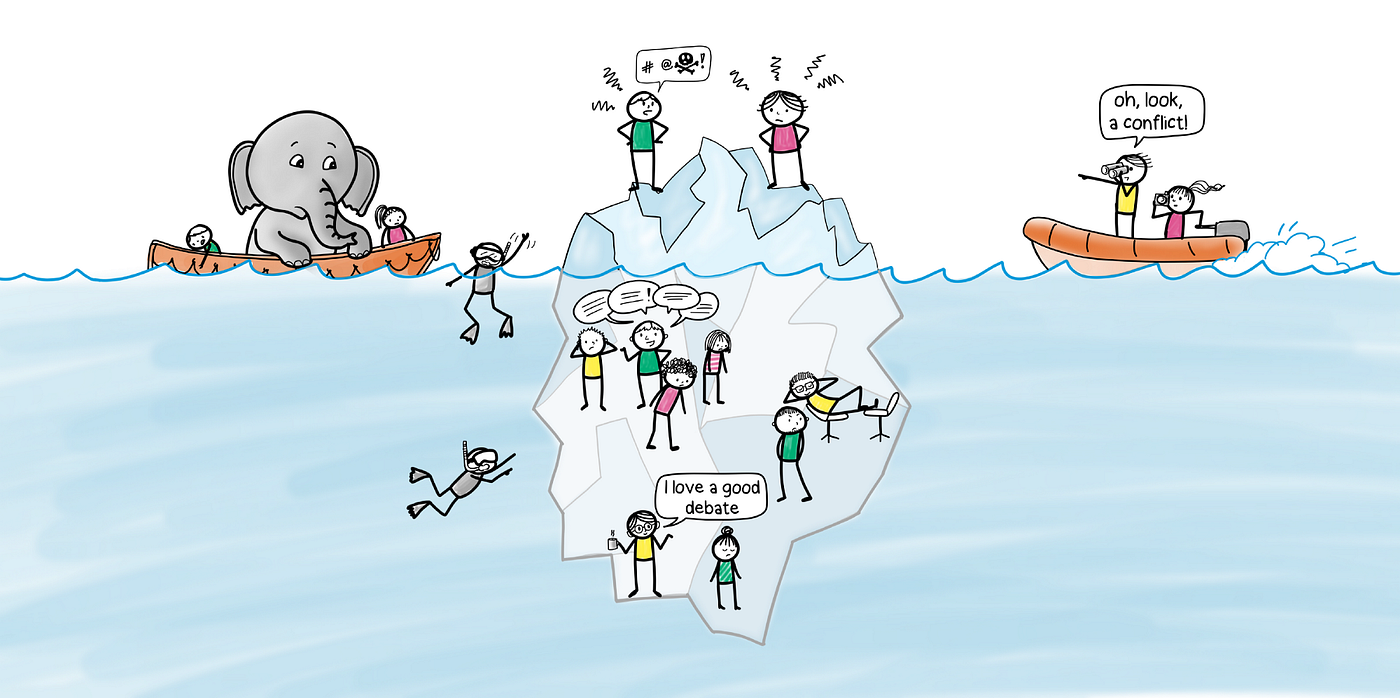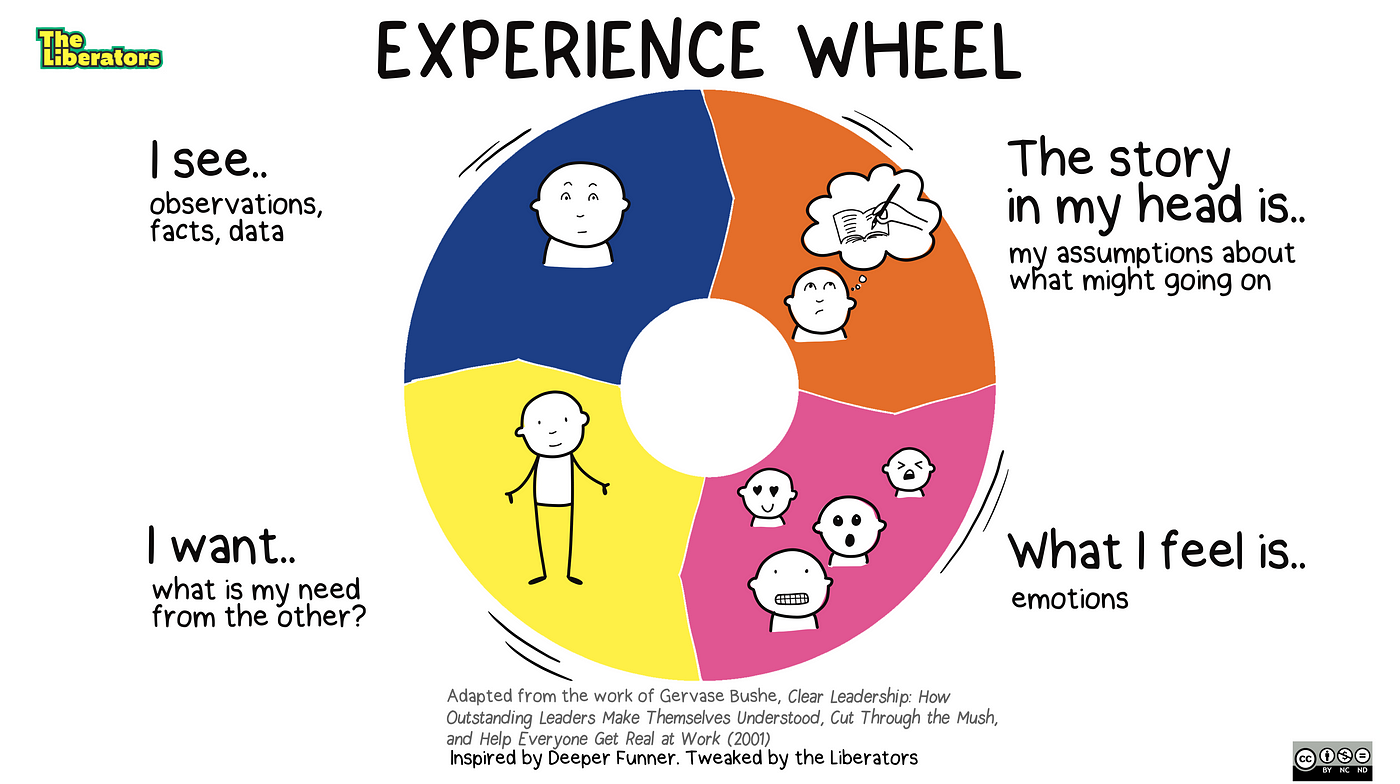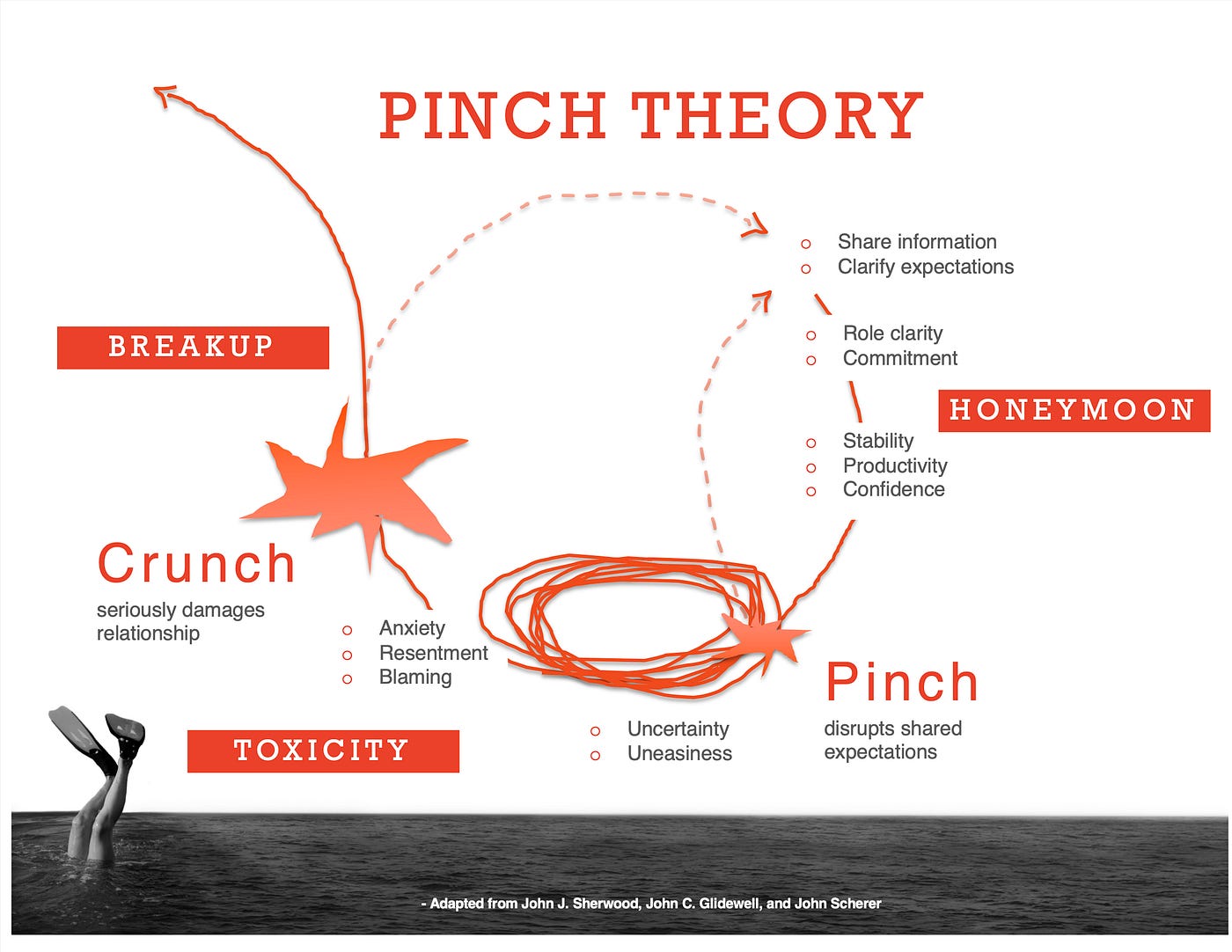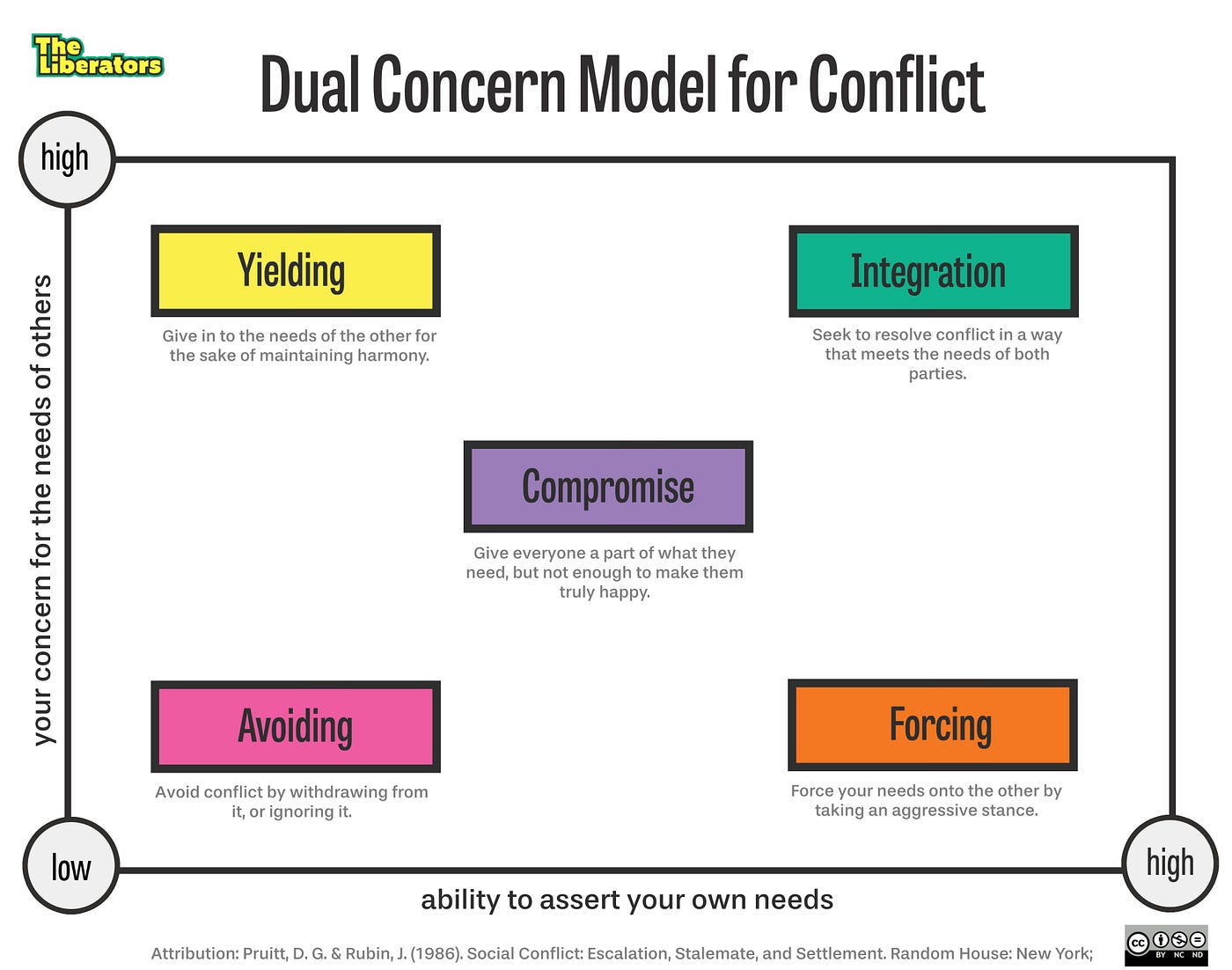
With the Scrum Team Survey, we measure task- and relationship conflict. Task conflicts center on the task at hand and involve different opinions on how to move forward. These conflicts center on how to perform certain tasks, what steps to take, and how to go about it. Scientific research by Karen Jehn and her colleagues (2001) has shown that a moderate amount of task-related conflict increases productivity for non-routine tasks — which Scrum teams usually engage in. Most teams probably thrive best with a moderate score on this scale, not very low and not very high.
On the other hand, relationship conflicts center on tension in the relationship between people and their personalities. Although task conflict is a healthy and natural part of working with other people, research shows that relationship conflict decreases team productivity and decreases safety. Relational conflicts draw energy away from productive work. So when your team scores low in this area, it’s cause for immediate concern, especially when it is consistently low over time.
So, it’s important to frequently ask yourself how your team is handling task- and relationship conflicts. We created a number of do-it-yourself workshops to help you figure this out. All of the workshops include a step-by-step approach to use them and help you move in the right direction.
The workshops and experiments are:
- Navigate Conflict Skillfully With The Experience Wheel
- Discover The Roots Of Conflict With Pinch Theory
- Use Improv Prototyping To Playfully Explore Five Styles Of Responding To Conflict
In this blog post, we offer you a short description of these workshops. We hope it inspires you to give them a try. Once you’ve used them, let us know the results, let’s learn and grow, together!
Note that we ask for a small donation in return for each workshop (5 USD). You can also support us on Patreon to download our digital content for free (note that this benefit starts from the “Contributor”-tier and onward).

Although task conflict is a healthy and natural part of working with other people, research shows that relationship conflict decreases team productivity and decreases safety.
Navigate Conflict Skillfully With The Experience Wheel
Conflict is a natural part of working with other people. If you ask someone what conflict is, they usually explain it in terms of a verbal dispute, raised voices, slamming doors, and angry faces. But most of our conflicts are far less visible. They may not be explicitly expressed by those experiencing it, but they do influence the dynamics of a group. And either the whole group is aware of this, or some are. This is the proverbial ‘Elephant In The Room’.
Although surfacing elephants can be messy, difficult work, it rewards teams with growth and learning when done productively. Bringing an elephant to the surface also frees up significant psychological resources; instead of complaining about their teammates at the dinner table, team members can redirect that energy into solving problems, coming up with new ideas, and rejuvenating outside of work. Teams that learn how to surface elephants can dance with conflict instead of running away from it.
We created this do-it-yourself workshop to learn how to address the elephant in the room more effectively with the Experience Wheel. It allows you to clearly express observations, feelings, needs, and assumptions and prevents jumping to wrong conclusions.
You can download this workshop from our webshop here.

You can download a high-resolution version of the Experience Wheel here.
Discover The Roots Of Conflict With Pinch Theory
Our brains are incredible organs, allowing complex emotions, thoughts, and creative solutions. Although they’re doing a good job of keeping up with how our modern lives have changed, they still retain many of the qualities that helped us survive millions of years ago.
Seeking safety in groups, our brains have evolved a deep sensitivity to social hierarchy and what is happening in our interactions with others. Our social nature gives us a strong innate need to be seen and heard by others, to belong to a group, and to be treated fairly compared to others.
Superficial task-oriented conflicts aside, most of our conflicts with others begin where those social needs are violated by others — often unintentionally. And this is where the “pinches” (small issues and annoyances) begin. As the pinches continue to build, it eventually results in a crunch, which means the end of a relationship, partnership, or collaboration.
We created this do-it-yourself workshop to make you aware of the Pinch Model for Conflict (Sherwood & Scherer, 1975). It helps you see how conflict builds over time, and how clarifying roles and expectations can help navigate them.
You can download this workshop from our webshop here.

Use Improv Prototyping To Playfully Explore Five Styles Of Responding To Conflict
Conflicts in groups are often “invisible elephants”. Instead of what we expect conflicts to be — raised voices and slamming doors — conflicts are often subtle and take place below the waterline. Like a team where everyone feels they are contributing more than the others. Or one person who feels they can’t get their voice in because another person is claiming all the air time in conversations. Research shows how even light conflict can cause team productivity to drop, as members are increasingly occupied with the fall-out.
We created this do-it-yourself workshop to familiarize your team with the Dual Concern Model for conflict (Pruitt & Rubin, 1986). It offers five common styles of how people respond to conflict. We use the Liberating Structure “Improv Prototyping” to encourage your team to playfully explore the different styles, address the ones they recognize, and make improvements accordingly.
You can download this workshop from our webshop here.

You can download this poster in a high-resolution version here.
Closing
We created these do-it-yourself workshops to help your Scrum team improve to navigate task- and relationship conflict. Although task conflict is a healthy and natural part of working with other people, research shows that relationship conflict decreases team productivity and decreases safety. So you want to act on this immediately. If you tried the workshops, let us know how they went. Your thoughts, ideas, and experiences are invaluable to us. Only together, we can create even more valuable content, and unleash the superpowers of Scrum Teams, all around the world!
